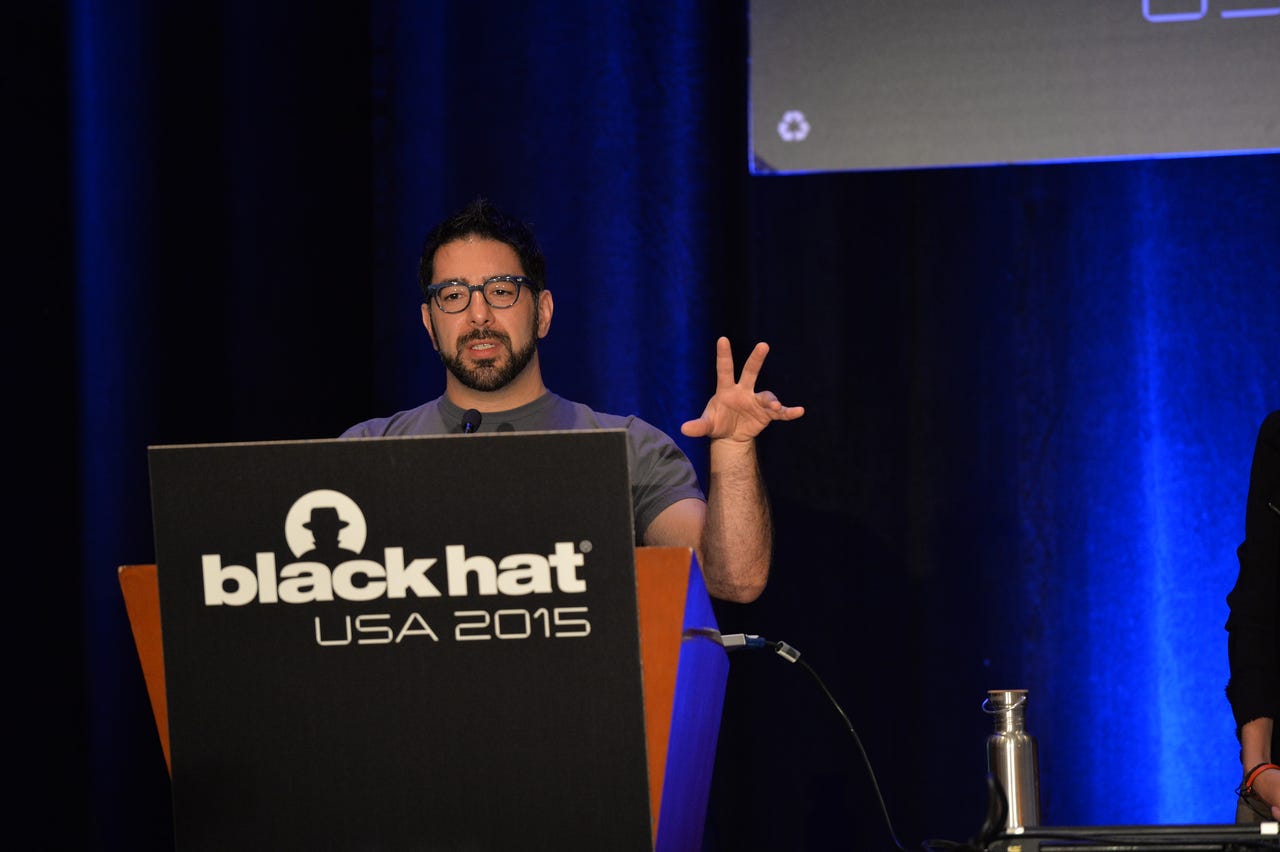White House sets dangerous precedent for future government workers, after refusing clearance for security expert Ashkan Soltani


Ashkan Soltani speaking at the Black Hat 2015 conference in Las Vegas, NV (Image: Black Hat)
Ashkan Soltani has left his position in the Obama administration two months after he was hired, because he was denied the security clearance "necessary to continue work" at the White House.
In a brief post on Twitter on Friday, Soltani declined to speculate on the reason why he was not cleared for classified work in government. "I'm told this is something that happens from time to time," he said. "I passed the mandatory drug screening some time ago, and the FBI background check was still underway," he added.
"There was also no allegation that it was based on my integrity or the quality of my work," he added.
As noted by The Guardian, Soltani's hiring back in December raised eyebrows among some in the executive branch for his prior journalistic work with The Washington Post. While he did not leak or publish any of the classified National Security Agency documents leaked by whistleblower Edward Snowden, it was Soltani's job to ensure and maintain the security and integrity of the documents. As his former Washington Post colleague Barton Gellman said on Twitter, Soltani helped to make the "workspace far more secure."
"Looks like the [national security] bureaucracy choked on a clearance," said Gellman, who Soltani worked closely with, calling the move a "big loss of talent and integrity" for the White House.
Noting some of his achievements during his pre-government journalistic career, ACLU principal technologist Christopher Soghoian said that it was Soltani's stories with the Washington Post that helped push Yahoo to turn on HTTPS web encryption, and revealed datacenter link tapping between Google datacenters.
"I suspect NSA hasn't forgiven him," said Soghoian in a tweet, a sentiment
It's a running theme among the security research and reporting community. Techdirt's Mike Masnick summed it up following the news when he said, "[Soltani] was supposed to help attract good techies to government. Blocking him does the exact opposite."
Soltani has a long list of security research to his name. It was his work more than a half-decade ago that uncovered "zombie" cookies across several major ad networks, which led to a multi-million dollar settlement with the Federal Trade Commission (FTC). He later joined the commission as its chief technologist.
Widely respected across the security spectrum, Soltani's appointment to the White House, where he would primarily focus on digital privacy matters, was expected to help bridge the ever-widening divide between government and the security community -- especially at a time where there is deep-rooted mistrust between the two.
READ MORE
Following his departure, industry watcher and independent writer Alex Howard said in a tweet that the White House "needs people with [Soltani's] skills and integrity in public service." Someone of his caliber to approach the tough issues in government while listening to all parties is not easy to come by.
The big question is, now what?
For Soltani, he plans to go back to the west coast. But for the government, any possible replacement may face similar issues -- some likely candidates may not apply for fear of finding out.
Just as the security community lost an advocate on the inside, the Obama administration lost someone keen to make positive change. Since the Snowden leaks, it's not as though the government has a long list of security researchers lining up at its doors. Banishing a well-known and highly-respected security researcher into the unclassified cold sends a message that government isn't willing to foster change, or accept that it needs help in securing the nation.
The Obama administration wants to invest $4 billion on educating a new generation of young computer scientists. But turning away one of the brightest minds in the security sector over a grudge sends an entirely different message.